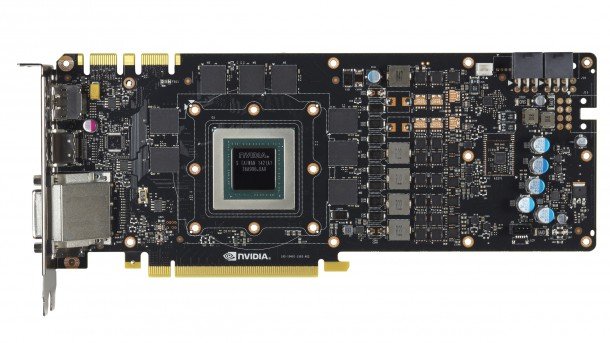Nvidia GTX 980 tested: SLI, 4K, and single-GPU benchmarks and impressions
One last thing: The GTX 980 is quiet. When I used MSI Afterburner to manually dial the fan up to 100%, it was easily audible through my case, which doesn't have any soundproofing. Still, it was only the volume of, say, a desk fan on a low setting. I didn't do a formal decibel test, but at max speed the GTX 980's fan was far quieter than my Radeon 7950's fan at a heavy load, which usually runs it to only 60% or so of full speed. The R9 290X's fan at 100% speed is also far louder than the GTX 980's.
In normal usage, though, you'll never see the most GPU fans dial up to 100%. Rome 2: Total War's benchmark only had the 980's fan spinning at about 45% speed, and it was inaudible through my case at that speed. Even with two cards being benchmarked in SLI in Maximum PC's lab, with the side panel of the testing rig removed, we couldn't hear the fans. This is not a card that will bother you while you play games.

Wrapping up
Based on our benchmarking results, the GTX 980 is a better deal in every way than the GTX 780 and 780 Ti were at launch, at $650 and $700. Nvidia has been calling it a successor to the 680, and at $550 / £429, I think that's a fair claim. If you like to buy a top-of-the-line card every 3-4 years, this is the one you've been waiting for. If you're already on a 700 series card or AMD equivalent, however, you're only going to see modest performance improvements which aren't worth spending $550 / £429 on.
All the new features Nvidia is supporting with this architecture, most notably MFAA, Voxel Global Illumination, and DX12, which I covered in detail here, are going to pay off in 2015 and 2016 games. Maxwell is such a big deal for Nvidia, the GTX 780 Ti, 780 and 770 are all being discontinued right now. Nvidia clearly wants to push support of its new technologies and get as many people as possible on Maxwell.
Keep up to date with the most important stories and the best deals, as picked by the PC Gamer team.

Wes has been covering games and hardware for more than 10 years, first at tech sites like The Wirecutter and Tested before joining the PC Gamer team in 2014. Wes plays a little bit of everything, but he'll always jump at the chance to cover emulation and Japanese games.
When he's not obsessively optimizing and re-optimizing a tangle of conveyor belts in Satisfactory (it's really becoming a problem), he's probably playing a 20-year-old Final Fantasy or some opaque ASCII roguelike. With a focus on writing and editing features, he seeks out personal stories and in-depth histories from the corners of PC gaming and its niche communities. 50% pizza by volume (deep dish, to be specific).

